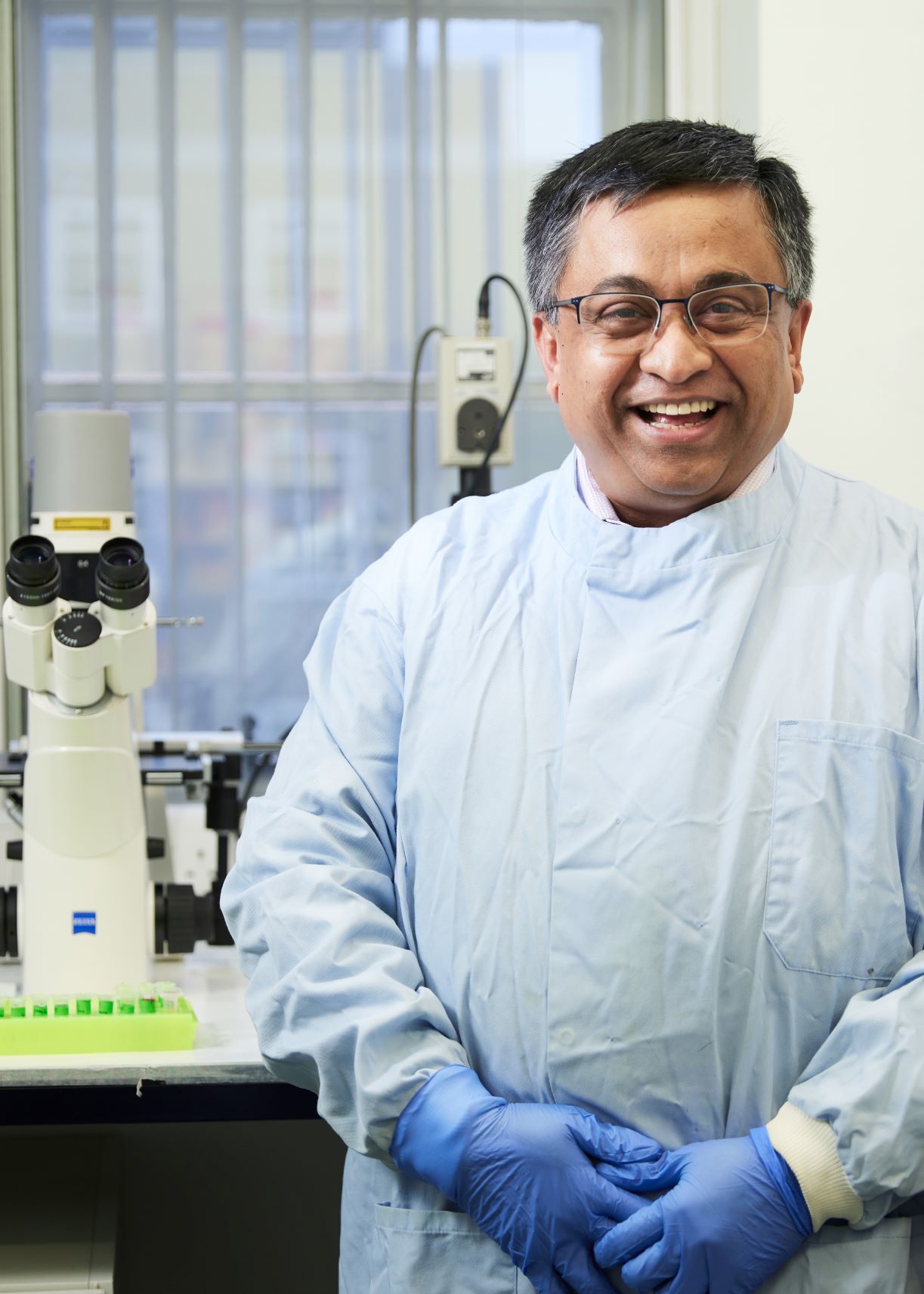This week, 18 to 24 November, marks World Antimicrobial Awareness Week, and this year’s theme is ‘Spread Awareness, Stop Resistance’. In this blog, Professor Sanjib Bhakta, Professor of Molecular Microbiology and Biochemistry, discusses the effect of the COVID-19 pandemic on antimicrobial resistance, why this is so alarming, and how research at Birkbeck is making a difference.
Antimicrobial resistance (AMR) is an alarming global crisis which inevitably arose alongside the ground-breaking discovery of antibiotics and its subsequent use to save billions of human and animal lives. The ongoing COVID-19 pandemic has caused a redirection of resources worldwide to fight the coronavirus. Naturally, this has meant resources such as Global Challenges Research Fund (GCRF) to fight antibiotic resistance have been disrupted.
COVID-19 has affected AMR rates and research dramatically in the last 18 months. There have been changes in availability of staff to research, treat and screen for AMR pathogens (disease-causing germs) leading to under-reporting of AMR cases. There has also been an increase of broad-spectrum antibiotic prescription, at least in some parts of the world due to possible bacterial co-infection and clinical presentation of cases, which has led to increased selection pressure on pathogens. As well as this, the introduction of disinfectant overuse could be driving mutation and increasing AMR rates. Despite reduced exposure due to COVID-19 measures, other factors have meant that AMR rates have increased. In order to stop this rise, better stewardship for antibiotic use need to be implemented.
Tackling the rise of antimicrobial resistance is central to our multidisciplinary research at the Institute of Structural and Molecular Biology (ISMB) Mycobacteria Research Laboratory and for our national and international collaborative partners. We investigate metabolism in order to address antimicrobial drug resistance in tuberculosis (TB); tackling this challenge by discovering novel antibiotic-leads and repurposing over-the-counter painkillers to cure TB and other non-tubercular mycobacterial (NTM) infections.
We have paid special attention to the study of the cell-walls of World Health Organisation (WHO)-priority bacteria in an ongoing ASEM-DUO fellowship exchange programme between the Indian Institute of Technology – India and Birkbeck, University of London, as cell-walls are an important site for attack by antibiotics such as penicillin. This inter-institutional collaboration between the UK and India continues to build a strong international research programme to tackle AMR and accelerate the development of new and effective treatment options.
Parallel to our lab-based research endeavours, we have integrated interdisciplinary approaches to tackle antimicrobial drug resistance in superbugs in partnership with ‘Joi Hok’, a community TB awareness programme in West Bengal, India. In this award-winning Microbiology Society Outreach Prize project, we have raised awareness of TB and antibiotic resistance with school children, their families, and local communities, through traditional storytelling, folk art, painting, and music.
To mark World Antimicrobial Awareness Week 2021 at Birkbeck, we have organised a student-led public-awareness presentation, an international students’ experience event and a research webinar series where we will be brainstorming the significance of interdisciplinary initiatives and strategies to tackle AMR.
If the current trend continues, there will be more than 10 million preventable deaths every year by 2050. Therefore, we must take every possible measure against antibiotic resistance in infectious diseases, now rather than later, before this major global health challenge goes beyond our capacity to control.
Further information
- ISMB Mycobacteria Research Laboratory
- Study BSc Biomedicine at Birkbeck
- Study MSc Microbiology at Birkbeck
- Study MRes Global Infectious Diseases at Birkbeck
- Birkbeck’s Department of Biological Sciences


A well written insightful piece on such a complex problem made easy for layman to understand. Congratulations!